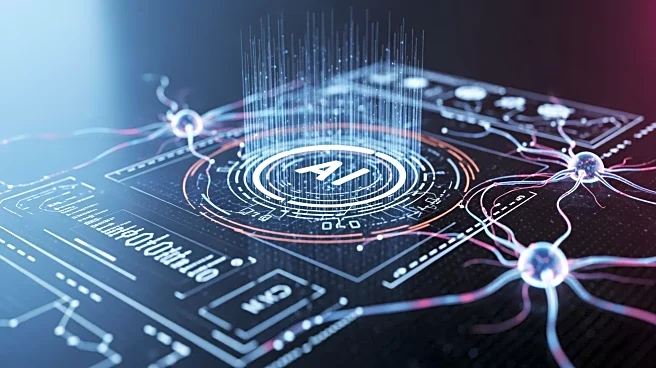What's Happening?
OpenAI's Sora app, a new AI video generator, has gained popularity for its ability to create realistic deepfakes, raising concerns about misinformation. The app allows users to generate AI videos that mimic public figures and celebrities, blurring the
line between reality and fiction. Sora's advanced features, such as high-resolution videos and synchronized audio, make it difficult to distinguish AI-generated content from real footage. Experts and unions like SAG-AFTRA have urged OpenAI to implement stronger guardrails to prevent misuse. The app's viral nature has led to increased interest in invite codes, highlighting the public's fascination with AI technology.
Why It's Important?
The rise of AI-generated content through platforms like Sora poses significant challenges for verifying authenticity, impacting public trust in digital media. Public figures and celebrities are particularly vulnerable to deepfakes, which can spread false information and damage reputations. The widespread use of AI tools like Sora could lead to increased misinformation, affecting societal perceptions and potentially influencing political and economic decisions. As AI technology becomes more accessible, the need for robust detection and verification systems becomes critical to maintaining the integrity of digital content.
What's Next?
The growing concerns over AI deepfakes may prompt tech companies and social media platforms to enhance their detection and verification systems. OpenAI might face pressure to implement stricter guidelines and safeguards to prevent misuse of its technology. Public awareness campaigns could be initiated to educate users on identifying AI-generated content and understanding its implications. The ongoing development of AI technology will likely lead to further discussions on ethical guidelines and the responsibilities of AI developers in preventing harmful applications.
Beyond the Headlines
The ethical implications of AI-generated deepfakes extend beyond immediate concerns of misinformation. As AI tools become more accessible, the potential for misuse increases, raising questions about privacy, consent, and the accountability of creators. The cultural impact includes a growing skepticism towards digital content, necessitating a shift in how society perceives and interacts with media. Long-term, the development of AI regulations and standards will be crucial in balancing innovation with protection against harmful applications.
















